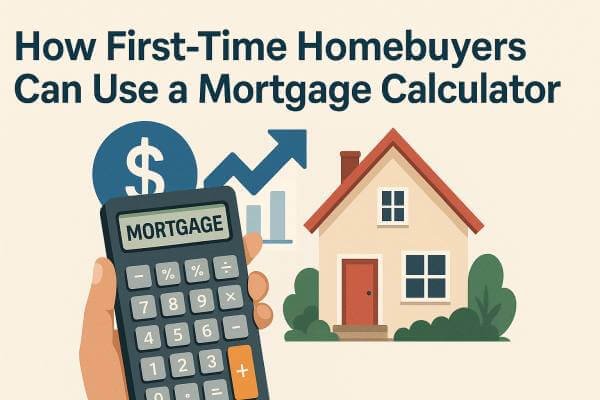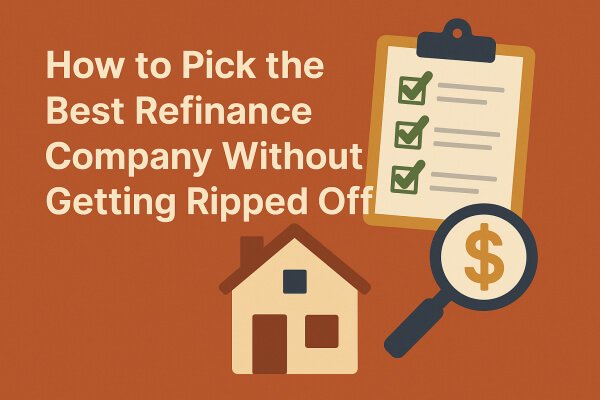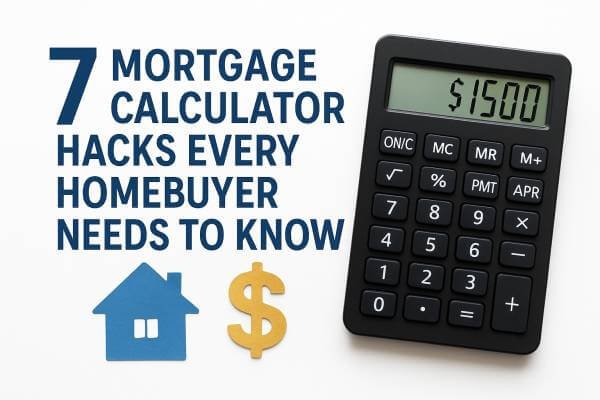Top Facts to Know About a Mortgage Agreement in Principle

If you’re considering purchasing a home, you’ll frequently encounter the term “mortgage agreement in principle.” The term “mortgage agreement in principle” indicates that a lender has reviewed your financial situation and believes you have the potential to qualify for a mortgage. It’s not a full approval, but it’s the first real step that shows you’re serious about buying.
Getting a mortgage agreement in principle (also called a decision in principle or mortgage pre-approval) gives you a clear idea of how much you can borrow. That means no more guessing or wasting time on homes that are out of your price range. Sellers and real estate agents are more likely to take you seriously when you have one in hand.
In this article, I’ll walk you through 7 key facts you need to know about how it works, what it means, and why every smart homebuyer should start here.
What Is a Mortgage Agreement in Principle?
A mortgage agreement in principle is basically a lender’s way of saying, “Based on what we know so far, we’d likely lend you this amount.” It’s a quick check of your financial situation, not a final approval. It’s like a sneak peek into your borrowing power before you begin house hunting.
The lender will usually ask for some basic info like your income, employment status, and credit history. Then they’ll run a soft credit check (so it won’t hurt your score) and let you know roughly how much they might be willing to lend you.
You might also hear it called a decision in principle or a mortgage in principle. They all mean the same thing. It’s not legally binding, and it doesn’t commit you to a lender, but it gives you a solid foundation to start your home search with confidence.
A mortgage agreement in principle is a smart move if you’re serious about buying, even if you’re not ready to apply for a full mortgage just yet.
Why a Mortgage Agreement in Principle Matters
What makes obtaining a mortgage agreement in principle worthwhile? It gives you an edge.
When you’re shopping for a home, having a mortgage agreement in principle shows sellers and real estate agents that you’re not just browsing. You’ve already taken that first step with a lender, and you’re likely able to follow through on an offer. In a competitive market, this can significantly enhance your chances.
It also helps you. With a mortgage in principle, you’ll know exactly how much you can borrow. That means no more falling in love with homes you can’t afford. You can focus your search on properties that actually fit your budget, which saves time and frustration.
Plus, it speeds up the process when you’re ready to make an offer. You won’t have to scramble to get approved or risk losing out while waiting on paperwork. Having that agreement in principle already done puts you in a much stronger position from the start.
How to Get a Mortgage Agreement in Principle
Getting a mortgage agreement in principle is actually pretty straightforward, and the best part is you can usually do it in under an hour.
Start by choosing a lender or a mortgage broker. Most lenders let you apply online, over the phone, or in person. You’ll need to provide a few key details: your income, employment status, monthly expenses, and any existing debts. They’ll also ask for your Social Security number so they can run a credit check.
Some lenders do a soft credit check, which won’t affect your credit score. Others might do a hard check, which can leave a mark, so it’s worth asking ahead of time. Soft checks are the safer option if you’re just shopping around.
You won’t usually need to provide physical documents at this stage, but having recent pay stubs, bank statements, or tax returns ready can help if you’re using a broker or going through a more thorough pre-approval process.
Once everything’s submitted, the lender will give you a certificate or letter confirming your mortgage agreement in principle. This will show the estimated amount you’re likely to be approved for, based on the info you provided.
It’s one of the quickest and most useful steps you can take to kick off your homebuying journey.
Does It Affect Your Credit Score?
The answer depends on the type of credit check the lender uses. Some lenders run a soft credit check, which gives them a basic look at your credit history without leaving a mark.
This type of check won’t affect your score at all. It’s perfect if you’re still exploring your options or applying with more than one lender.
Other lenders might do a hard credit check, which is more detailed and shows up on your credit report.
While a single hard check may not have a significant impact, repeated hard checks within a short period can significantly lower your credit score.
So if you’re applying with a few lenders, try to stick with those that offer soft checks until you’re ready to commit.
Most lenders today use soft checks for mortgage agreements in principle, especially if you’re doing it online or through a broker.
Before applying, kindly inquire with the lender about the type of check they will conduct. That way, you can protect your credit while still getting the agreement in principle you need to move forward.
What is the duration of the mortgage agreement in principle?
A mortgage agreement in principle doesn’t last forever. In most cases, it’s valid for 60 to 90 days from the date it’s issued. That gives you a decent window to start viewing homes and making offers without rushing the process.
Don’t worry if your contract expires before you find a place. You can usually request a new one from the same lender, especially if your financial situation hasn’t changed.
Some lenders might just update the original one, while others could ask you to go through the process again.
Keep in mind, if your income, job, debts, or credit score changes, the lender might offer you a different amount the second time around. So it’s best to apply when you know you’re serious about buying, not months before you’re ready.
Additionally, please be careful not to confuse the expiry date of the mortgage agreement in principle with the duration required to obtain a full mortgage offer.
This agreement is just the starting point, but it helps you get ahead when the time comes to apply for the real thing.
It’s a temporary but powerful tool that helps you shop smarter. Just make sure you use it while it’s still valid.
Is a Mortgage Agreement in Principle Guaranteed?
Here is something many buyers get wrong. A mortgage agreement in principle is not a guaranteed mortgage offer. It serves as a strong indication that a lender may be willing to lend you a specific amount, depending on the information you provided.
When you apply for a full mortgage, the lender will conduct a thorough investigation. They will look closely at your income, bank statements, employment details, debt, and full credit report. If anything looks different from what you provided earlier, or if new risks show up, the lender could decide to reduce the amount or decline the full application.
Some common reasons a mortgage might be rejected after an agreement in principle include:
- A change in your job or income
- A drop in your credit score
- Missing documents or errors in your application
- Issues with the property itself
Although a mortgage agreement in principle provides a strong foundation, it is not a guarantee. It helps you shop with confidence, but it is still important to stay financially stable and honest throughout the process.
Treat your mortgage agreement in principle as a useful tool, not a guarantee. Use it to guide your home search, but be prepared for a thorough review when you apply for the actual deal.
When Should You Get a Mortgage Agreement in Principle?
The best time to get a mortgage agreement in principle is prior to you starting to seriously look at homes. This way, you know your budget and won’t waste time on properties you can’t afford.
Getting it early also helps when you find a place you love. Sellers and real estate agents are more likely to take your offer seriously if you already have a mortgage in principle. This demonstrates to them that you are prepared to proceed rather than merely browsing.
If you are a first-time buyer, it is especially helpful. It gives you a clear idea of your borrowing power and lets you focus your energy on homes you can actually afford. Plus, it helps you avoid surprises later in the process.
You do not need to wait until you have picked a home. In fact, getting your mortgage agreement in principle early puts you in a much stronger position once you are ready to make an offer.
The sooner you get one, the better. It is a smart move that can save time, reduce stress, and help you move faster when the right property comes along.
Can a Mortgage Be Rejected After an Agreement in Principle?
Yes, a mortgage can still be declined even after you have a mortgage agreement in principle. Although the agreement indicates your likelihood of approval, it does not provide a guarantee.
The lender issues the agreement based on a quick check of your finances. When you move forward with a full mortgage application, they will take a much closer look. This includes reviewing your income documents, credit history, employment status, and the property you want to buy.
If anything looks different from what you originally provided, the lender might change their decision. For example, if your credit score drops, your job changes, or your debts increase, the lender could reduce the amount they are willing to offer or reject the application altogether.
The property itself can also be a factor. If the lender believes the home is not worth the price or has legal or structural issues, that can also lead to a decline.
To reduce the risk of a future decline, please ensure honesty and accuracy throughout the agreement in principle process.
Avoid taking on new debt or making major financial changes until your full mortgage is approved. That way, you can move from agreement in principle to full approval with fewer surprises.
Final Thoughts
Getting a mortgage agreement in principle is one of the smartest things you can do before you start house hunting. It gives you a clear idea of what you can afford, shows sellers you are serious, and helps speed things up when it is time to make an offer.
Remember, it is not a guaranteed mortgage offer, but it is a strong first step. Make sure the information you give is accurate, keep your finances steady, and use the time wisely while your agreement is still valid.
If you are just starting your homebuying journey, talk to a lender or broker today. It’s fast, often free, and may be the key to your next big move.
Frequently Asked Questions
1. What is the difference between a mortgage agreement in principle and a full mortgage offer?
A mortgage agreement in principle is a quick estimate of what a lender might be willing to lend based on basic financial info and a soft credit check. A full mortgage offer happens after the lender reviews your full application, documents, and property details. It is a formal loan offer.
2. Can I make an offer on a house without a mortgage agreement in principle?
Yes, you can, but it is not recommended. Most sellers and agents prefer buyers who already have a mortgage agreement in principle. It shows you are prepared and financially serious, which gives your offer more weight.
3. Does getting multiple mortgage agreements in principle hurt my credit?
It depends. If lenders are using soft credit checks, your score will not be affected. Always ask the lender which type of credit check they use before applying.
4. Is a mortgage agreement in principle legally binding?
No, it is not legally binding for you or the lender. It is simply a guide that says you are likely to be approved for a certain amount based on what you shared. The final decision comes later when you apply for a full mortgage.
5. Can I get a mortgage agreement in principle with bad credit?
It is possible, but the amount you can borrow may be lower, and not all lenders will approve it. Some lenders specialize in working with buyers who have poor credit. It is still worth applying, since it helps you understand your options and what steps you might need to take next.

























